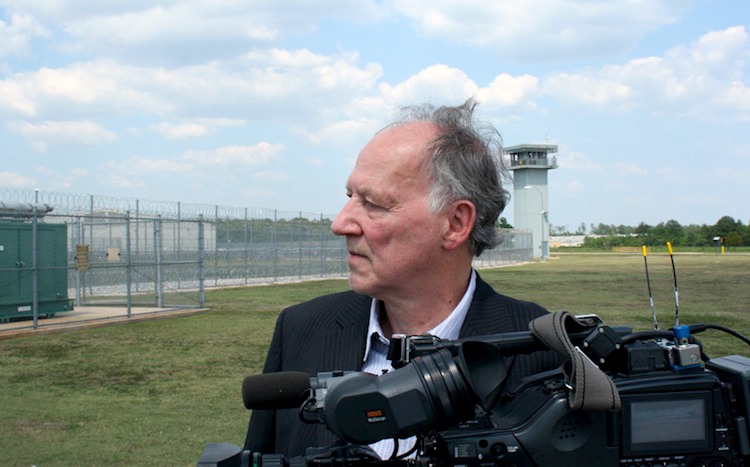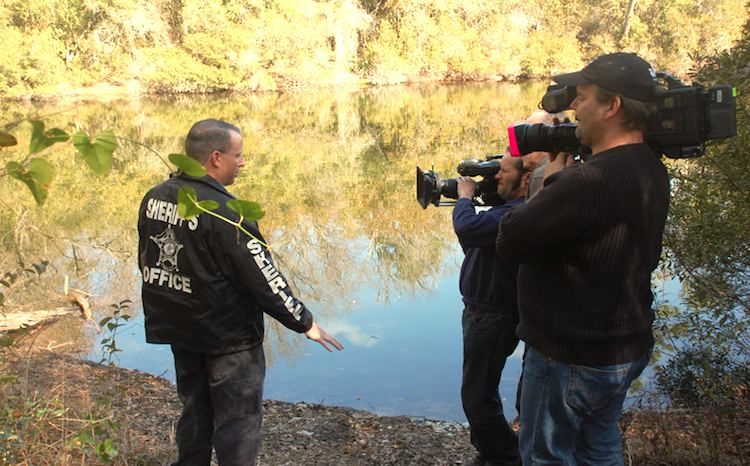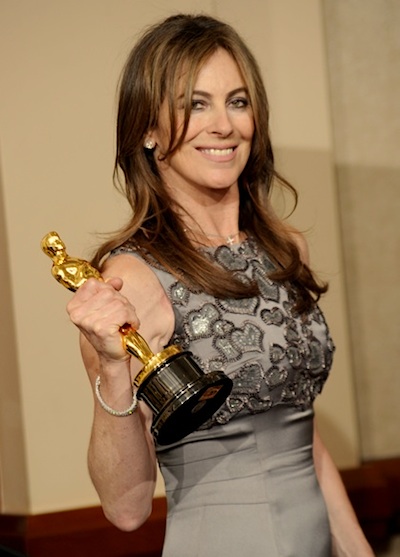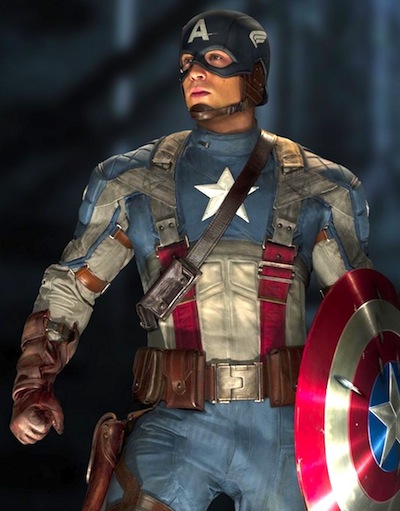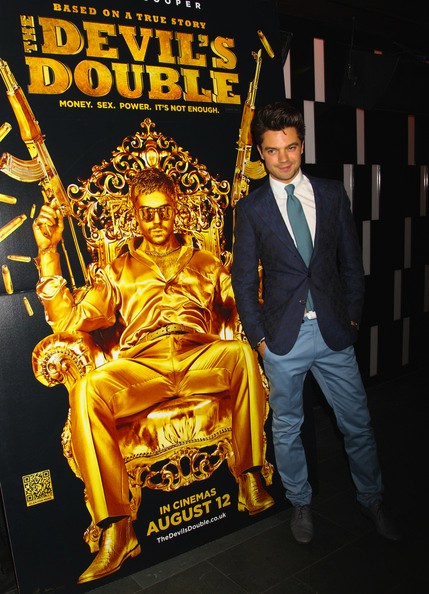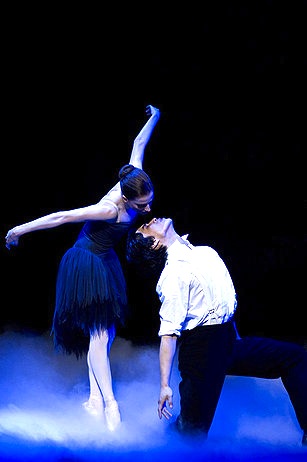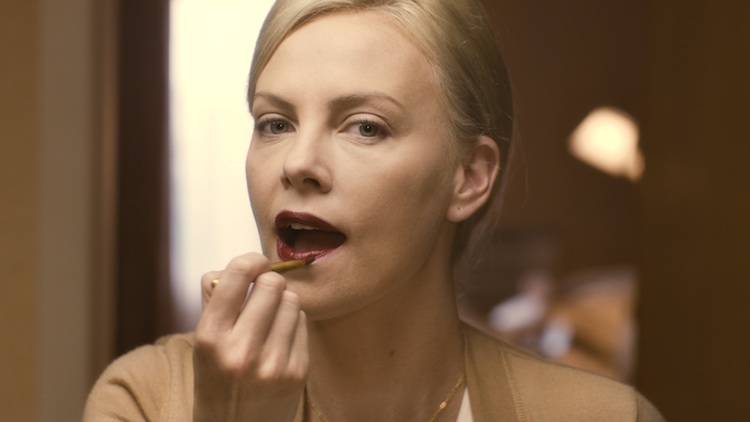
[Editor’s Note: the post below appears today on the front page of The Huffington Post.]
By Govindini Murty. Charlize Theron’s new movie Young Adult offers one of the most striking depictions of narcissism to hit movie screens in some time. Directed by Jason Reitman, Young Adult tells the story of Mavis Gary (Theron), a self-absorbed writer of young adult novels who returns to her hometown to steal back her happily-married former boyfriend (played by Patrick Wilson). I had the chance to see Young Adult recently at a screening hosted by The Huffington Post and AOL. HuffPost Founding Editor Roy Sekoff moderated the colorful Q & A that followed at Arianna Huffington’s home with screenwriter Diablo Cody and actor Patton Oswalt. In the most memorable exchange of the evening, actress Sean Young (Blade Runner) asked Diablo Cody why she had decided to explore the subject of narcissism in the film. Cody wryly responded that perhaps it was because Young Adult was the first screenplay she wrote upon moving to LA. This drew a big laugh from the crowd, but the implication seemed more serious: what is the ever-increasing narcissism in Hollywood entertainment doing to our broader culture?
Charlize Theron’s Mavis embodies all the narcissism of modern popular culture. She’s obsessed with reality TV (the Kardashians drone on in the background of several scenes), a medium that has elevated the navel gazing of minor celebrities to the level of major entertainment. Mavis writes young adult novels that are only thinly-disguised relivings of her own high-school glory days, and she’s otherwise obsessed with appearances and shallow celebrity status. The film repeatedly shows Mavis studying herself in the mirror – either in depressed self-loathing after an alcoholic bender, or with vain self-satisfaction as she puts on makeup to impress her former boyfriend.
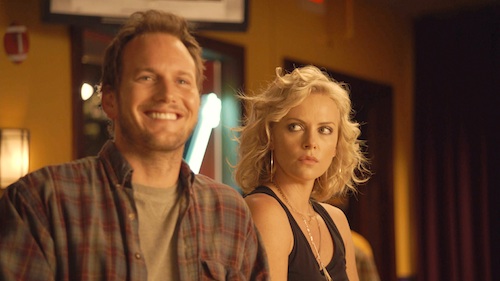
In keeping with the instability of identity that goes with modern narcissism, Mavis also adopts different personae as it suits her: at home she plays the dumpy writer in baggy jeans and t-shirts, but when she wants to seduce her old boyfriend she dresses in a low-cut black dress and adopts the manner of a big-city sophisticate. Later when Mavis is invited to a baby’s naming ceremony, she takes on another guise: that of a sober career woman with her hair in a bun, wearing a high-necked dress and conservative spectator pumps. Her various outer guises fail to impress the people of her hometown, though, for Mavis has neglected to develop any sustaining character traits. Mavis is the classic narcissist: cut off from objective reality, lacking any concern for other people, insecure in private but willing in public to ride roughshod over anyone and everything in order to gratify her whims.
Interestingly enough, Young Adult is one of several upcoming films that explore the dangers of vanity and narcissism. For example, two new adaptations of the Snow White fairy tale, Mirror Mirror and Snow White and the Huntsman, depict vain queens willing to kill to maintain their beauty – with Charlize Theron even playing the villainess in the latter film. In keeping with the original fairy tale, the wicked queen’s obsession with her own appearance in both films is so extreme that she literally has a spirit residing in her mirror that she calls on to affirm her own beauty – this spirit acting as the exterior personification of her own vanity.
In Young Adult, Theron’s Mavis may not literally kill young women in order to remain beautiful, but her narcissism leads her to disregard all moral standards as she attempts to destroy the marriage of her former boyfriend and undermine the happiness of his wife and baby.

Young Adult vividly depicts what happens when self-love crosses the line into monstrous solipsism. This type of narcissism is becoming a defining trait of our modern cinema, and is taking on ever more baroque forms. It extends into the trend of psychological thrillers like Inception, The Ward, Dream House or Sucker Punch that take place almost entirely within the mind of a character, often one who is mentally unstable. Although these thrillers depict elaborate action, they recast this action as being the involuted imagining of a diseased mind – or of someone who has lost the will to live. Indeed, in Inception the hero’s wife becomes so confused between reality and delusion that she commits suicide. Such films are symbols of a culture in decay – like the passive Narcissus of Greek mythology, so intent on gazing inwardly at himself that he loses the will to engage productively with the outside world.
The last time such narcissistic themes appeared en masse in Western culture was during the late 19th century Decadent movement, just before Europe collapsed into the conflagration of World War I. Decadent novels like Oscar Wilde’s The Picture of Dorian Gray portrayed self-absorbed aesthetes who cared only for their external appearances, using them as cover to commit the ugliest of crimes. Dorian Gray’s portrait is the functional equivalent of the “double” seen by Mavis as she stares into her mirror – or of the reflected doubles that feature in Mirror Mirror, Snow White and the Huntsman, or even The Devil’s Double or Black Swan. Like Narcissus gazing at himself in the forest pool, all these reflected doubles signify the modern split psyche – alienated from humanity, from moral values, and from objective reality.

In the old days this destructive narcissism was known by another word – vanity – and it was considered one of the seven deadly sins. However, in the twentieth century with the rise of photography and the cinema, Western culture has become ever more dominated by the visual image – and vanity has ceased to be stigmatized, instead being outright celebrated. Of course, there is a glorious life-affirmation inherent in appreciating the beauty of the physical. It would be just as perverse to denigrate beauty as to overvalue it. Nonetheless, Western culture has become so over-preoccupied with outward appearances that it is neglecting the important moral and intellectual qualities that give those appearances any larger meaning.
Perhaps dramas like Young Adult represent a healthy effort to deal with the problem of narcissism. After all, the movie shows how Mavis Gary’s self-absorption only leads to heartbreak, as relationships with family and old friends prove more difficult for her to manage than she expected. Reality eventually comes crashing into the hermetically-sealed world of Mavis’ narcissism and she is forced to deal with it.
This is as it should be. We can only evade objective reality for so long before being faced with one of two choices: either retreat into the reflection in the mirror and go mad, or look outside of ourselves and reestablish a healing connection with humanity and the larger world.
Posted on November 29th, 2011 at 10:17am.
